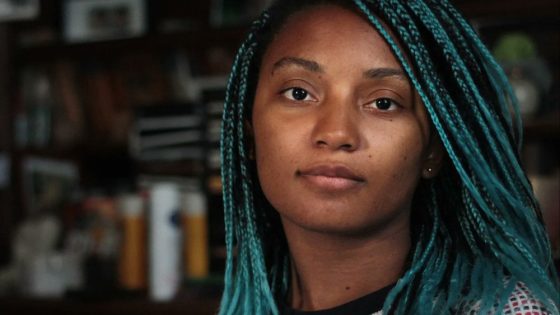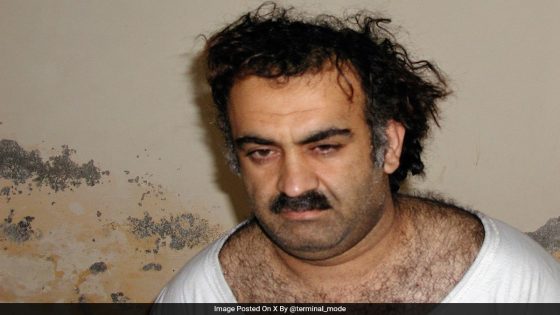In a different world, had she not been readying her long-awaited sophomore feature, “On Becoming a Guinea Fowl,” for its Cannes premiere, Rungano Nyoni might have spent the past few weeks preparing her family for its upcoming move to Zambia, the southern African nation where the director was born and spent part of her childhood. Instead, it was a mad dash to get the film across the finish line.
“It’s been long hours, non-stop for weeks,” Nyoni says on the eve of the French fest’s opening night. The frenzy isn’t likely to let up anytime soon: The director and her family plan to move house and fly to Zambia not long after the whirlwind of her Cannes premiere. Even those rare moments of calm on the Croisette between photo calls and press junkets aren’t likely to offer much relief. “I brought my toddler for good measure, just to make it even more interesting,” Nyoni says.
In 2017, the Zambia-born, Wales-raised filmmaker made waves with her feature debut, “I Am Not a Witch,” a satire about witchcraft set in modern-day Zambia that premiered in Cannes’ Directors’ Fortnight section. The film bowed “trailing ribbons of new-discovery buzz,” according to Variety‘s Jessica Kiang, its “defiantly uncategorizable mix of superstition, satire and social anthropology” heralding the arrival of an audacious new talent. “It’s rare and exhilarating that a new filmmaker arrives on the scene so sure of herself and so willing to take bold, counter-intuitive chances,” wrote Kiang.
“I Am Not a Witch” would travel widely after Cannes, including stops in London and Toronto, landing Nyoni a BAFTA for outstanding debut by a British writer, director or producer en route to being named the U.K.’s submission for the Academy Awards. Variety named Nyoni one of its 10 Brits to Watch in 2018.
Six years later, her anticipated follow-up — a dark comedy about abuse, trauma, buried secrets and the lies we tell ourselves — hits the Croisette with high expectations and a starry pedigree. The film is financed by A24, BBC Film and Fremantle and produced by Tim Cole (“The Swimmers”) and Andrew Lowe and Ed Guiney of Element Pictures, the Irish shingle behind a trio of premieres at this year’s Cannes fest, including Yorgos Lanthimos’ Palme d’Or contender “Kinds of Kindness.” A24 is also repping the film internationally.
Speaking to Variety ahead of the film’s May 16 world premiere in Cannes’ Un Certain Regard sidebar, Nyoni describes the powerhouse collaboration as a “dream,” even while she admits, “I’m a bit too nervous to enjoy it.” “You forget when you’re going through it [and making a movie], you’re just so worried about what’s not working, but you have to remind yourself what is,” she says.
That includes working alongside Oscar-winning studios like Element and A24, with acclaimed Colombian cinematographer David Gallego — DoP on Ciro Guerra’s Oscar-nominated “Embrace of the Serpent,” as well as “I Am Not a Witch” — adding his talents to boot. “It’s a miracle. It’s a miracle that they’re on board,” says Nyoni. “I get suspicious about people wanting to [work with me]. Like, what do you want with me? What do you want with my film? What do you want? I’m too suspicious so I don’t enjoy it so much. Maybe I should.”
What sparked the idea behind “On Becoming a Guinea Fowl”?
I wrote it about three years ago. I think it’s one of these ideas that are already being shaped in my mind, and then something triggered it. At the time I was in Zambia, and in Zambian life, you go to a lot of funerals. But this occasion, I’d gone to the funeral of someone I was very close to. I think that triggered the actual writing of it, like I found a place to place the story. But I think I already had different versions in my mind. My first producer said I’ve always been trying to tell this story.
You had the emotions before you had the plot.
Yes. Always. “I Am Not a Witch,” I wrote when I was depressed. I think anger and depression often trigger my writing. It’s never a happy space. I don’t know why. Something triggers something and I want to express it in a way. I don’t usually know what it is, but I allow it to shape itself. My story is always changing.
Nyoni made waves with her satirical debut “I Am Not a Witch.”
Courtesy of Cineurope
Men get very little screen time in your film, but this story revolves around the trauma caused by problematic men.
The conversation is always about the patriarchy and how to bring down patriarchy. And I just thought that’s interesting because Bemba is a matriarchal society. How can you explain that the same thing happens in the matriarchy? Keeping secrets, protecting terrible men. People talk about patriarchy, but we have matriarchy and it’s still the same crap. We have to deal with the same sort of misogyny. We’re talking about the patriarchy, but what about here [in Zambia]? Why is it all coming to the same point? That’s what I was interested in. And I don’t have an answer. Why are we so hard on women? Why is it so hard?
The film takes places over a days-long funeral. What does that look like in Zambia?
Everybody disagrees. You have the Bemba culture of funerals, but then they change within families, and also depending on who died. You get instructions from different people, different factions. For example, at my grandmother’s funeral, we heard from her only living brother who said there’d be no crying. We were all so happy about it. We were like, “So we’re not going to be wailing in a room? Oh my God, that feels so good!” It felt genuine. Because that can also take a toll, that performance. Having to wail in a certain way all the time. It can be exhausting.
Do you think we can learn something through communal grief?
It’s funny because English funerals are very buttoned-up. To cry how we cry [in Zambia], everyone would just be looking at you like, “You’re going mad, right?” It’s this contradiction with Zambian culture. Some of it is very outward, and then a lot of stuff is unsaid. It’s performative, but part of it is about releasing. After a funeral, you’re not really supposed to dwell on the person that died, you’re supposed to move on. That’s the idea. So you release everything together.
At the beginning of the film, your protagonist, Shula (Susan Chardy), doesn’t seem entirely at ease in this world.
She is at arm’s length. She’s definitely privileged, for sure. That was important to show. She’s sort of sheltered from things happening around her. It’s reflective of me. I decided at one point she has to be based close to my experience. She’s probably more similar to me [than other characters], in the terms of her relationship with Zambia, coming in, coming out, and being an outsider.
It seems to work both ways. Shula also keeps the family at a distance. Her aunts almost literally drag her to the funeral.
Bantu culture says you are who you are because I am who you are. I am because we are. This kind of thing. Which is great, and you really feel like part of the community, but you end up having to cater to that against your own needs. And it can be counterproductive for your own self. It’s a different culture where you don’t think about yourself so much.
It’s the thing that Shula has to balance, but it’s nothing new. I think each generation, or each person, has to do that in their own story, counter what’s best for everybody else and what’s best for yourself within this culture where you can’t just tell people to eff off, because they’re part of you.
How much do you relate to that?
I always think I’m an anthropologist with my own culture, I’m always outside looking in. I can code switch, but I feel it. I see all the beauty in it, and also the downsides.

“On Becoming a Guinea Fowl” premieres in Un Certain Regard.
Courtesy of A24/Chibesa Mulumba
As we discover more about the trauma suffered by several characters in the film, Shula decides to look for posthumous justice. Why is that so hard for her?
In Zambia, we don’t speak ill of the dead. Also, we believe the spirit might haunt you. I think she has different things to overcome in order to face what’s happened to her. It’s something she has to do herself. And it is difficult, it is frustrating. It’s the difficulty of not being complicit and the difficulty of facing something that you can’t face yourself. How do you get justice? I was very honest when I was writing it, when I was making it, when I was editing it. I still don’t know.
You took your then 5-month-old to Zambia to prep “Guinea Fowl.” What was that like?
Intense doesn’t cover it. Because I was always in prep, and we were working long hours. I made this decision which was so stupid, and I would never advise anyone to do that: I thought I had to keep breastfeeding, that it was the only way we’d be connected because I’m never there. So I would shoot however many long hours, get there at like 12, and I’d be with her the whole night. And I’d turn up really exhausted on set, and I’d tell people, “I have to be honest, I don’t know what’s happening. You just have to make choices. I could be dreaming this.” I was so tired. I was really delirious. I don’t know why I did that. I just thought, It’s the only thing I can do. It’s the only thing I can offer her.
You decided to move with your family back to Zambia, which you left when you were a young girl. When is that happening?
It was supposed to be May. If it weren’t for Cannes, it would’ve been Zambia.
What prompted the move?
I go every year, but it just didn’t feel like enough. I guess having a kid, you want to connect them to their roots a little bit more. And you want to feel a little less rootless. I’ve always wanted to go back. Don’t ask me why. I keep saying I don’t know why I’m doing it. I’m just doing it. It’s not going to be easy, but let’s see. I’m going to try.
Your daughter, now 2 years old, is at the festival. Is she excited to be here?
She likes Cannes. Last year, we stayed in a really nice hotel and she really liked it. She’s very bougie. She can tell the difference between our apartment and a nice bougie hotel. I think it’s the carpets and gold things and shiny things that she can play with. We don’t have carpets and gold things and shiny things at home.
Source Agencies




